#Gardening Community
Text
The glory of gardening: hands in the dirt, head in the sun, heart with nature. To nurture a garden is to feed not just the body, but the soul.
~ Alfred Austin
#glory#garden#gardening#dirt#sun#nature#nurture#feed#home and garden#Gardening Life#Nature Lovers#Green Thumb#Gardening Tips#Garden Inspiration#Garden Design#Garden Goals#Gardening Community#Outdoor Living#Garden Life#Botanical Beauty#Gardening Quotes#Garden Therapy#Nurturing Nature#Garden Love#inspiration#inspiring quotes#quotes
63 notes
·
View notes
Text
Like this post if you have a communtiy garden
4 notes
·
View notes
Text
the allergy i am seeing grow up around small talk in any form is troubling to me. do you know how to make friends with people in your physical environment? it typically starts with small talk. do you want to live in community? small talk. do you want to have the type of relationship with your neighbors where you can run over and borrow a battery for your smoke detector when it starts beeping at 10pm? small talk!! do you want leeway from your coworkers when you fuck up something small? you gotta be able to build a relationship and that's small talk, baybeee.
"but i don't need friends and i don't care about community!" okay, lone ranger, what about the people in your community who need you? "but i have social anxiety!" me too, bud! we simply must soldier on. making up lists of questions to ask people helps. and people are predisposed to be generous, i've found. even if you make some kind of mistake, what is this but the natural give and take of human interaction? nobody is perfect.
you were not put on this earth to live by yourself and then die. you need people and people need you. treat those around you with curiosity and generousness of spirit and you will gain so much goodwill in return.
#my pharmacist spotted me a weeks worth of meds once when mine were in a building closed for asbestos#because we'd been doing small talk for a couple of months and had a rapport#this is not emotional labor btw. in no way is 'doing small talk' emotional labor. dont say that.#edification#community is a garden
30K notes
·
View notes
Text
#blog post#gardening#herb garden#herbalism#witchcraft#home garden#witches#witchblr#green witchcraft#green witch#kitchen witch#personal#blogger#bloggers#lifestyle blog#witch community#gardening community#witchy vibes#witch aesthetic#herbalist#herbal
1 note
·
View note
Text
Plant Show Essentials: Must-Have Items for Your First Pop-Up Plant Event
In recent years, the green-thumbed community has witnessed a delightful emergence in the horticultural world – the pop-up plant show. This innovative concept combines the allure of temporary events with the passion for houseplants, creating an ephemeral yet unforgettable experience for plant lovers. But what exactly is a pop-up plant show, and why has it become such a hit among those who adore…
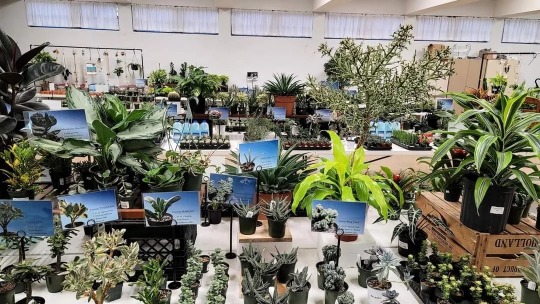
View On WordPress
#artisan plant products#botanical events#botanical experiences#community events#gardening community#green lifestyle#green spaces#houseplant appreciation#houseplant care workshops#houseplant sale#houseplant trends#indoor gardening#indoor plant decor#local vendors#plant care education#plant collecting#plant community#plant cultivation#plant enthusiasts#plant hobbyists#plant retail#plant shopping#plant-based events#pop-up plant show#rare plants#sustainable living#Tropical Plants#Urban Gardening
0 notes
Text
Plant Hardiness Zone Map Updated
The United States Department of Agriculture has released an updated version of its Plant Hardiness Zone Map. The map is based on data from Oregon State University's PRISM Climate Group, and it reflects a shift towards warmer temperatures across the country.
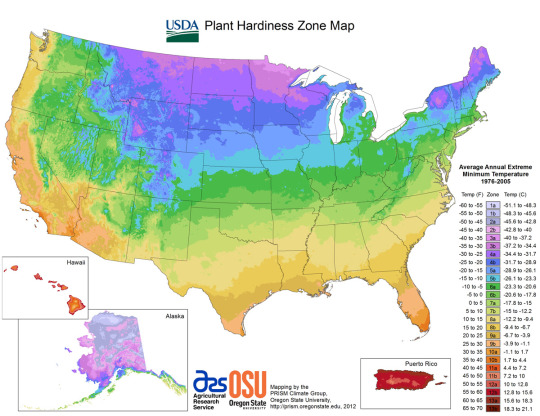
What is the Plant Hardiness Zone Map?
The Plant Hardiness Zone Map is a tool that gardeners and growers use to determine which plants are most likely to survive in their area. It is based on the average annual extreme minimum winter temperature, and it divides the country into 13 zones.
What are the key changes in the new map?
The new map is about 2.5 degrees Fahrenheit warmer than the 2012 map. This shift has resulted in about half of the country shifting to a warmer half zone, and half remaining in the same half zone. The central plains and Midwest have seen the most warming, while the southwestern U.S. has seen very little.
Zone 10a has been expanded to include parts of Texas and Louisiana, and Zone 11a has been expanded to include parts of California and Arizona.
Zone 12b has been expanded to include parts of Florida and Hawaii.
How can I find my plant hardiness zone?
Gardeners and growers can enter their zip code at planthardiness.ars.usda.gov to find their plant hardiness zone.
#Plant Hardiness Zone Map#USDA#Gardening#climate#climate crisis#Climate Change#Plant Adaptation#Gardening Community#usa news
1 note
·
View note
Text

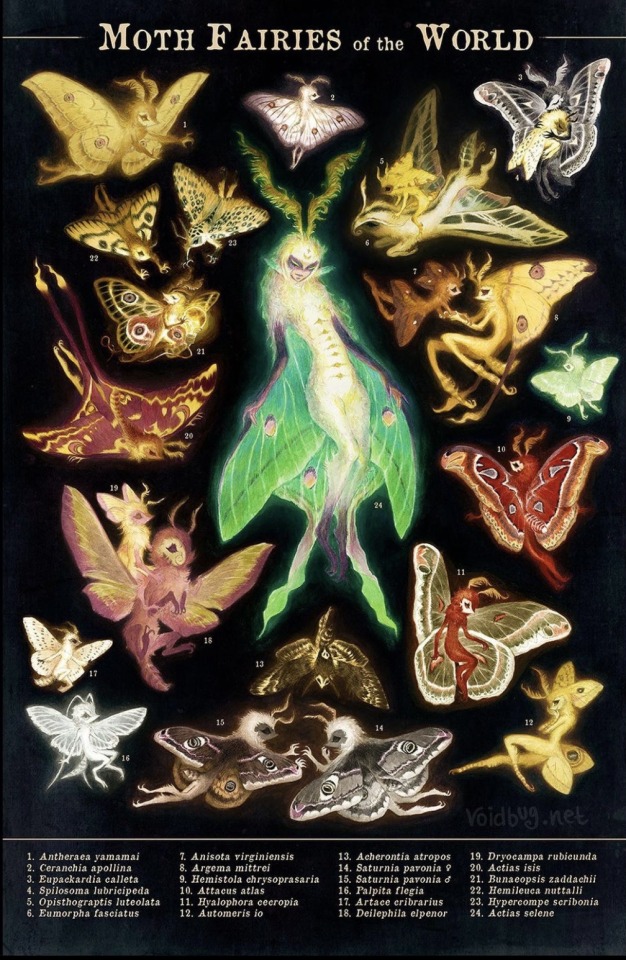
𝓑𝒖𝒕𝒕𝒆𝒓𝒇𝒍𝒚 𝓕𝒂𝒊𝒓𝒊𝒆𝒔 𝒂𝒏𝒅 𝓜𝒐𝒕𝒉 𝓕𝒂𝒊𝒓𝒊𝒆𝒔 𝒐𝒇 𝒕𝒉𝒆 𝓦𝒐𝒓𝒍𝒅
© Malina Dowling
#painting#art#artblr#illustrating#fairycore#moth#butterfly#illustration#fantasy#goblincore#gardencore#garden#cottagecore#grandmacore#cottage#cozycore#cozy#fairytale#fairytales#artist#magic forest#book illustration#illustrator#illustrations#artists#oil on canvas#oil painting#art community#art gallery#art blog
5K notes
·
View notes
Text
If people make cutesy posts about growing food and herb spirals and composting but never talk about stuff like preventing and getting rid of rats in a garden, I get this suspision that they either haven't actually gardened much or they're more interested in presenting an aesthetically pleasing image than in actually preparing people to deal with a garden.
#Like the unrealistic gun hoarding bunker doomsday preppers of gardening#but instead of imagining a world without rules and community they imagine a world without rats and mold and plant virusses#Which is a better worldview than those preppers but not a more realistic one.
5K notes
·
View notes
Text
Get Digging: The Ultimate Guide to Choosing a Shovel
Don't get stuck with the wrong shovel! Our guide to Choosing a Shovel will help you find the perfect tool for your gardening or construction needs. Read more here.

#Gardening Tools#Gardening Essentials#Green Thumb Tips#Garden Inspiration#Home Gardening#Garden Life#Garden Tools#Gardening Community#Gardening Love#Gardening Tips#Yardener#gardening tumblr
0 notes
Text
This is approximate since calculations vary, but somewhere in the neighborhood of 20% of carbon emissions since the Industrial Revolution have come from destruction of terrestrial ecosystems—wetland destruction, deforestation, degradation of grasslands and so on
Soil, soil communities, root systems, carbonate rock, wood, living plants, and peat in wetlands—all holds carbon
Now consider what plants do for you
The mere sight of plants and trees improves mental and physical health. I won't elaborate much more upon this, the positive effects are incredible and overwhelming.
Trees and vines that shade your home and outdoor areas: reduce the cost of cooling, meaning less electricity is used. Shade reduces the risk of death in extreme heat events.
(Trees also reduce light and noise pollution)
Edible plants (many wild plants and many plants you can grow): provide you with food reducing your dependence on industrial agriculture and cars to reach supermarkets
Community gardens and orchards: creates resilience and interdependence among small local communities, reducing the power of capitalism and increasing the ability of individuals to organize and create change. Makes more sustainable and plant based diets accessible to people for whom they would ordinarily be inaccessible
Compost piles for gardening: less greenhouse gas emissions than result from waste breaking down anaerobically in landfills
No more traditional lawns: much less use of gas powered lawn mowers, weed whackers etc. which are, by themselves, significant contributions to carbon emissions and urban pollution
Crafting and creating using plants: Locally available wild plant species can be used by local crafters and creators for baskets and containers, yarn, fabrics, dyes, and the like, resulting in less dependence on unsustainable and unethical global industries
More people growing and gathering edible and useful plants and using them = larger body of practical, scientific and technological insights to draw from in order to solve future problems
In conclusion: Plants
#plants#plantarchy#you are a caretaker#climate change#climate change mitigation#climate change adaptation#gardening#community gardens
3K notes
·
View notes
Text
I think it's so adorable that early humans took wild gourds - a tiny fruit that hollows out as it dries, making it float - and decided to make something out of it
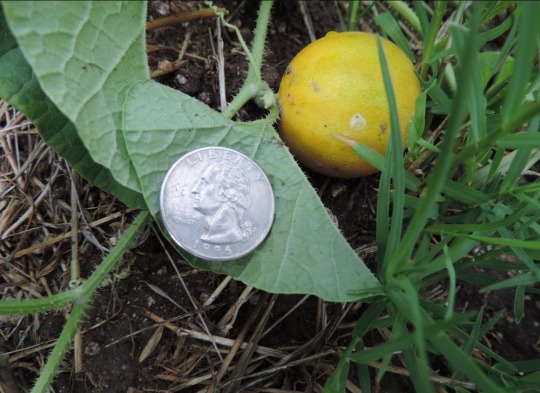
they thought the tiny fruit was so good that they bred it for thousands of years, making it larger to form into bowls and cups, and different shapes to become bottles and spoons
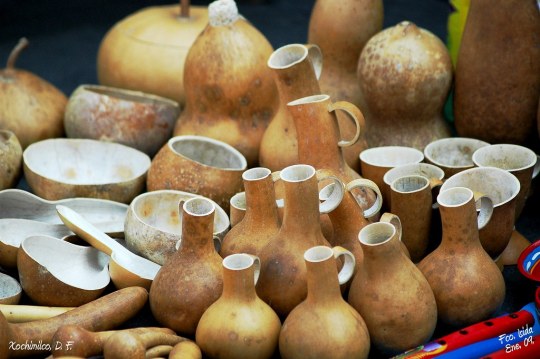
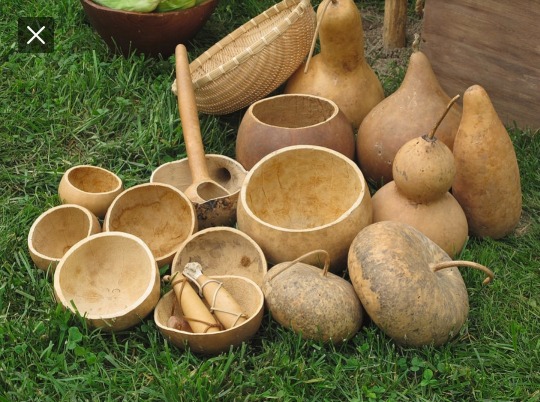
and musical instruments
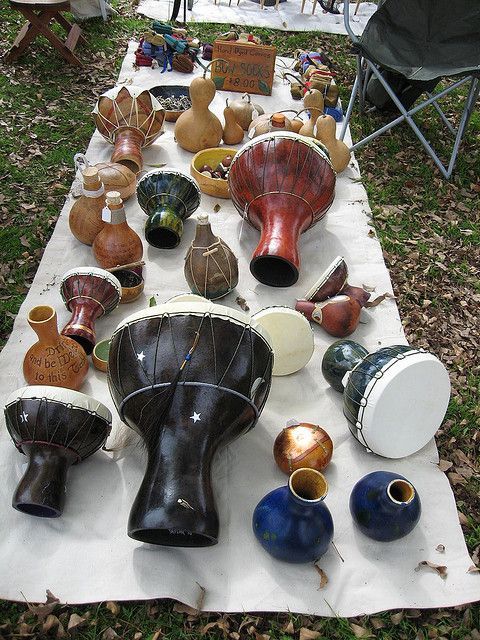

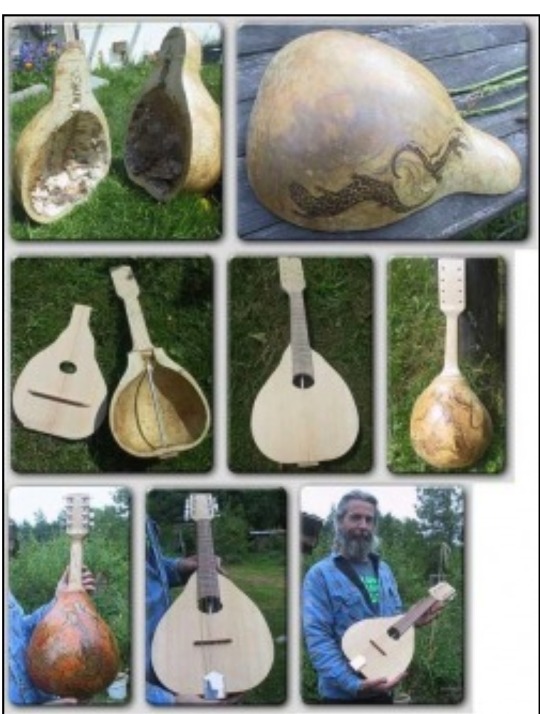
And then, people took the hollow gourds they farmed, and they turned them into houses for birds. We adapted them into the perfect houses for birds, and now there are specific breeds of birdhouse gourd just for making into birdhouses
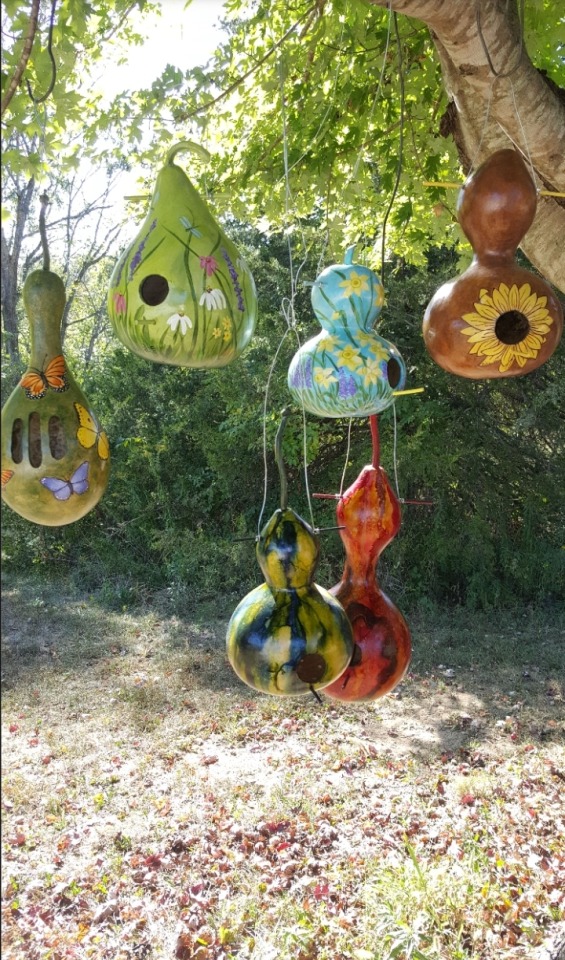
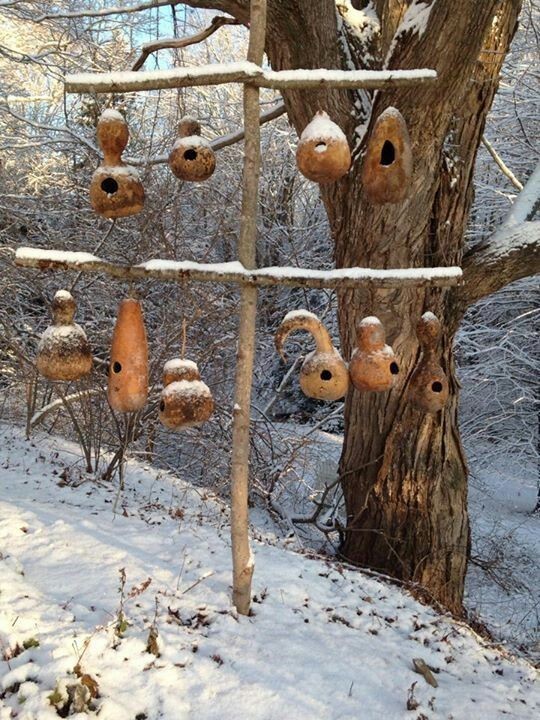
And humans dedicated gardening space and time and thousands of years of breeding to make the gourds so absolutely perfect for birds, that there is a species of bird that lives almost exclusively in them
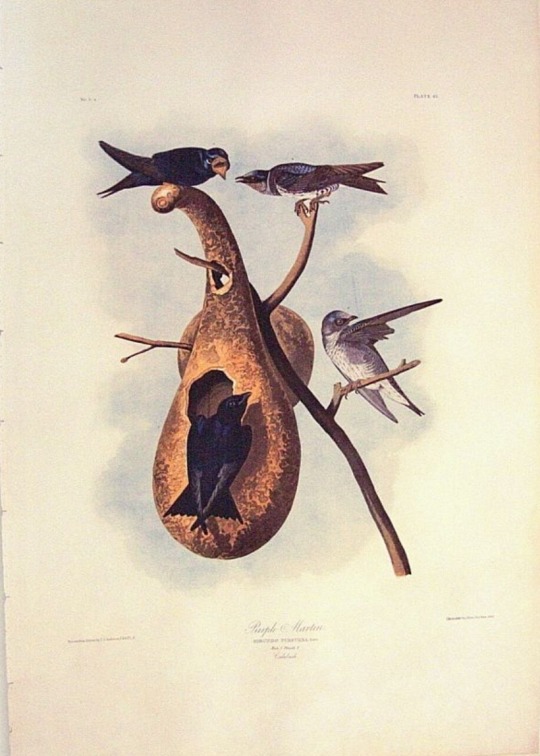
#yes I KNOW i posted about this the other day but *crying* i just love plant domestication and the history of agriculture#and humanity's positive affect on the ecosystems we live in#mine#image IDs in alt text#hmm. I'm gonna tag this#permaculture#just to pspsps @ that community to look at how cool gourds are please everyone grow birdhouse gourds and give cavity nesters places to live#i don't think mine will become fully ripe before i get my first frost :( next year i need to start gourds indoors#i didn't want to grow them before because i didn't have much garden space but now i do and i need to grow all of them#i might be. a little obsessed with gourds. but also i saw a pair of purple martins flying by the road last year#and i had never seen one before then! and i need to see more of them#i have a few hundred barn swallows but i need more birds flying around my house. more!!#and also i have a ton of invasive cavity nesting species around here. house sparrows and starlings.#gotta make up for those things competing with native birds for nest dites#*sites#the invasive birds very often win :/#that's why they're invasive#i really do need to start trapping them....
31K notes
·
View notes
Text

I need a front yard garden ASAP. They’re so fucking pretty. Let me be cute and feed my neighbors.
686 notes
·
View notes
Text


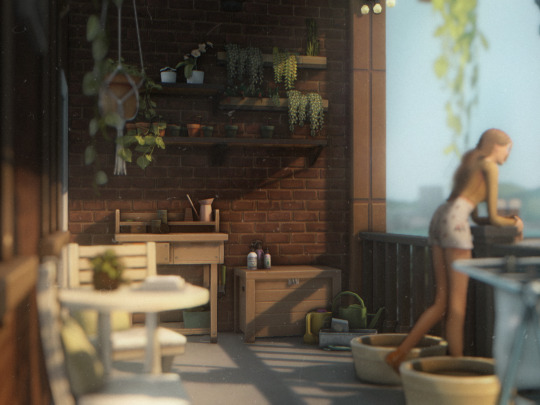
🌿
#sims 4#ts4#the sims 4#sims 4 screenshots#sims 4 maxis match#the sims community#ts4 gameplay#sims 4 legacy#симс 4#basegame sims4#garden sims#grilade dynasty
758 notes
·
View notes
Text

#garden cottage#naturecore#forestcore#goblincore#cottagecore#witchyvibes#hedge witch#witchcore#witchblr#witch community#dark naturalism#gremlincore#witchy
753 notes
·
View notes
Text
Who wants to be girl best friends and all live on a big plot of land together and raise chickens and bake bread and garden together
2K notes
·
View notes
Text
Every once in a while I’ll see some posts about everyone should become vegan in order to help the environment. And that… sounds kinda rude. I’m sure they don’t mean to come off that way but like, humans are omnivores. Yes there are people who won’t have any animal products be it meat or otherwise either due to personal beliefs or because their body physically cannot handle it, and that’s okay! You don’t have to change your diet to include those products if you don’t want to or you physically can’t.
But there’s indigenous communities that hunt and farm animals sustainably and have been doing so for generations. And these animals are a primary source of food for them. Look to the bison of North America. The settlers nearly caused an extinction as a part of a genocide. Because once the Bison were gone it caused an even sharper decline of the indigenous population. Now thankfully Bison did not go extinct and are actively being shared with other groups across America.
Now if we look outside of indigenous communities we have people who are doing sustainable farming as well as hunting. We have hunting seasons for a reason, mostly because we killed a lot of the predators. As any hunter and they will tell you how bad the deer population can get. (Also America has this whole thing about bird feathers and bird hunting, like it was bad until they laid down some laws. People went absolutely nuts on having feathers be a part of fashion like holy cow.)
We’re slowly getting better with having gardens and vertical farms within cities, and there’s some laws on being able to have a chicken or two at your house or what-have-you in the city for some eggs. (Or maybe some quails since they’re smaller than chickens it’s something that you’d might have to check in your area.) Maybe you would be able to raise some honey bees or rent them out because each honey tastes different from different plants. But ultimately when it comes to meat or cheese? Go to your local farmers. Go to farmers markets, meet with the people there, become friends, go actively check out their farm. See how the animal lives are and if the farmer is willing, talk to them about sustainable agriculture. See what they can change if they’re willing. Support indigenous communities and buy their food and products, especially if you’re close enough that the food won’t spoil on its way to you. (Like imagine living in Texas and you want whale meat from Alaska and you buy it from an indigenous community. I would imagine that would be pretty hard to get.)
Either way everything dies in the end. Do we shame scavengers for eating corpses they found before it could rot and spread disease? Do we shame the animals that hunt other animals to survive? Yes factory farming should no longer exist. So let’s give the animals the best life we can give them. If there’s babies born that the farmer doesn’t want, give them away to someone who wants them as a pet. Or someone who wants to raise them for something else. Not everyone can raise animals for their meat. I know I can’t I would get to emotionally attached. I’d only be able to raise them for their eggs and milk.
Yeah this was pretty much thrown together, and I just wanted to say my thoughts and throw them into the void. If you have some examples of sustainable farming/agriculture, please share them because while I got some stuff I posted from YouTube, I’m still interested to see what stuff I might’ve missed!
#solarpunk#farming#hunting#agriculture#sustainability#sustainable farming#sustainable agriculture#like Rewilding farm land is pretty interesting and trying to replicate an ecosystem with farm animals but also allowing wild animals#to make homes in the rewild farm land is pretty cool#and I have an absolute love for food/garden forests#and hydroponics have shown to be really great for communities in the winter time and they want to have fresh produce#all sorts of cool stuff
846 notes
·
View notes